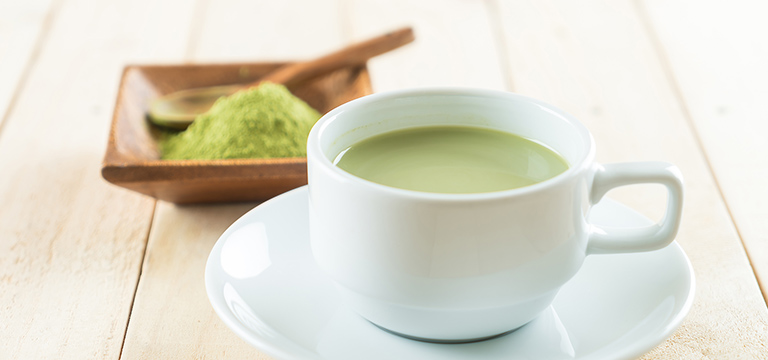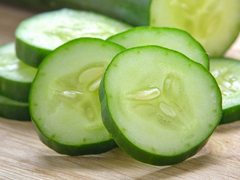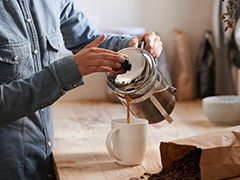Matcha Versus Coffee

Matcha is one of the newest trending superfoods, even though it’s technically been around for centuries. Matcha is a powdered type of Japanese green tea that has been getting a lot of good press lately for its great health benefits.
Coffee is one of the most commonly consumed beverages in the world. This go-to caffeinated pick-me-up has reigned supreme for decades.
So what’s the difference between these two? If you’ve been an avid coffee drinker forever, should you switch to matcha? Will coffee protect your heart health better than it’s green tea counterpart? Here’s what you need to know.
|
|
Coffee (8oz) |
Matcha (2oz of water mixed with 1 tsp powder) |
| Calories | 2 | 5 |
| Carbs | 0 grams |
1 gram |
| Sugar | 0 grams | 0 grams
|
| Fiber | 0 grams |
0 grams |
|
Protein |
0.3 grams |
1 gram |
|
Fat |
0.5 grams |
0 grams |
|
Caffeine |
96 mg |
38-88 mg |
Both drinks contain minimal calories when brewed with hot water, but coffee tips the caffeine scales with around 96 mg in one standard cup. Matcha manages around 38-88 mg. Matcha’s caffeine content varies more than coffee’s for a few reasons. The amount of powder, variety and freshness of leaves, water temperature and brewing time can all raise or lower caffeine content.
It’s not just the amount of caffeine that makes these drinks different, it’s also how the caffeine makes you feel. Coffee provides more of an instant energy boost that wakes you up and helps fight fatigue. Your body can quickly absorb up to 99% of the caffeine in coffee.
Matcha’s caffeine will still boost your energy, but at a slower, more gradual pace than coffee does. Matcha also contains an amino acid called L-theanine that can actually help reduce stress. L-theanine crosses your brain barrier and increases alpha waves in your brain.
Matcha boasts some more pros as well. It can calm the mind without making you drowsy. It may improve your oral health, and it’s easy to make with no special equipment necessary. The downsides? Prices vary, but matcha tends to be a bit more expensive than coffee. There is also a risk of consuming green tea leaves that could be contaminated with heavy metals.
Coffee is a cheaper, highly available alternative but has its own drawbacks. Too much consumption can create a dependence on caffeine. Some people have reported unpleasant side effects like insomnia, headache or anxiety.
Both drinks have their pros and cons, but these two beverages actually share a lot of important health benefits like:
- Weight loss
- Cancer-fighting antioxidants
- Compounds that reduce heart disease risk factors
- Improved liver health
- Enhanced mood and brain function
So, if you’re looking to shake up your morning routine, consider switching your coffee for matcha. Or give your matcha a rest and take the instant energy boost from coffee.



